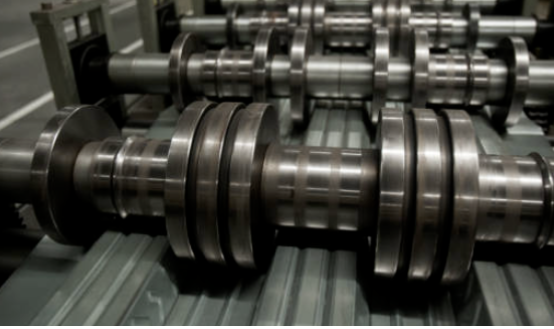
Posted on Wednesday, November 13, 2024
When buying a roll forming machine in France, whether new or used, there are essential considerations that can make a difference in efficiency, cost-effectiveness, and machine longevity. This guide covers all you need to know, from choosing between new and used options to addressing profiles, power supply compatibility, and other critical factors. Let’s dive in.
Purchasing a new roll forming machine has several advantages for buyers looking for the latest technology, long-term reliability, and customization options. Here’s what to consider:
Buying a used roll forming machine can be a great option for businesses looking to save on costs. However, it’s crucial to carefully assess the condition and compatibility of the machine.
Selecting the right profiles for your roll forming machine is crucial, especially since different industries in France often use specific profile shapes and sizes. Here’s how to ensure your machine meets these needs:
Shipping and after-sales support are key considerations when buying a roll forming machine, especially if it’s sourced internationally.
Q1: What are the essential checks when buying a used roll forming machine in France?
A1: When purchasing a used machine, inspect the rollers for wear and tear, check the frame for signs of stress or rust, and verify the functionality of the PLC system. Additionally, ensure that the machine is compatible with the French power supply and confirm whether it meets local safety standards.
Q2: How can I ensure that a new roll forming machine meets France's compliance standards?
A2: Check for CE certification, which indicates that the machine complies with European health, safety, and environmental standards. Also, inquire if the machine’s safety features align with French regulations.
Q3: Do I need a specific type of roll forming machine for unique profiles used in French industries?
A3: Yes, depending on your industry, certain profiles are more common. For example, construction sectors in France often use specific profiles like U-channels. Discuss these requirements with your supplier to ensure the machine is capable of producing the needed profiles efficiently.
Q4: What are the considerations for power supply when importing a machine from another country?
A4: France uses a 230V, 50Hz power supply. If the machine is from a country with a different standard (such as the U.S., which uses 60Hz), confirm with the manufacturer if the machine can be adjusted for French electrical standards to avoid performance issues.
Q5: Is after-sales support available for international purchases?
A5: Many suppliers offer global after-sales support, but verify if this includes on-site servicing in France. Local support can save time and reduce machine downtime in case of repairs or maintenance.
Whether you’re considering a new or used roll forming machine, ensuring it meets your profile requirements, power compatibility, and French compliance standards is essential. With careful planning and the right questions, you can make a well-informed choice that benefits your production process in the long run.

Used Purlin Roll Forming Machines for Sale Worldwide
Posted on Sunday, January 25, 2026
Pre-Owned Roll Forming Machines for Purlin & Structural Steel Profiles

Used Roof Panel Roll Forming Machines for Sale Worldwide
Posted on Sunday, January 25, 2026
Pre-Owned Roll Forming Machines for Roofing Panel Production

Used Roll Forming Machines for Sale Worldwide
Posted on Tuesday, January 20, 2026
Pre-Owned Roll Forming Machines with Inspection, Verification & Global Support

Steel Coil Supply for Roll Forming Machines Worldwide
Posted on Tuesday, January 20, 2026
Reliable Steel Coil Supply for Roll Forming, Fabrication & Manufacturing Applications
Copyright 2026 © Machine Matcher.